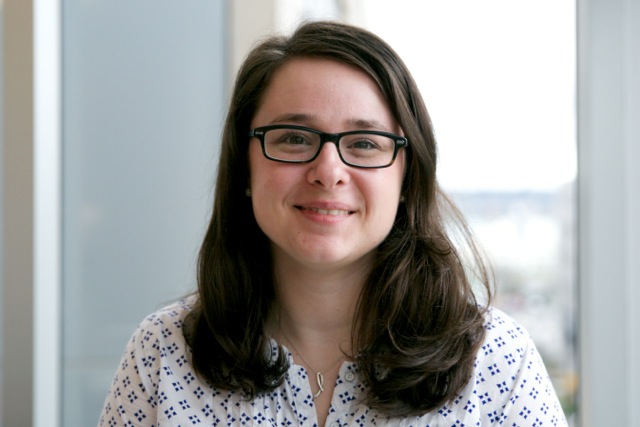What got you interested in science?
I grew up on a farm, so I was around animals and nature a lot and science was a constant topic of conversation in my household. There wasn’t a particular moment where I became interested in science, it’s really been a lifelong passion. I went to college with the plan of going medical school so I took that path taking science classes and getting a Biology degree. During my Junior year, a professor talked to me about continuing my science career doing research and instead of going to grad school and getting my Ph.D. So after multiple conversations with professors and scientists, I applied for Ph.D. programs.
- Next, I want to do something that is more translational
- I appreciate that during my Ph.D. and as a scientist I have the freedom to ask questions and dive deeper into a particular topic or interest.
How did you get at ISB?
In grad school I was interested in doing infectious disease type work; working with pathogens and bacteria. I focused and rotated through two microbiology labs, but I was also taking an immunology course and I thought it was fascinating so I joined a lab that was going microbiology and immunology work. Before finishing my Ph.D. I looked around for labs that were doing solely immunology work, specifically innate immunologists and found Naeha’s lab at the ISB. I appreciated that the lab was a strong cellular immunology lab as well as the exposure to systems biology that I’d get in the lab.
High school:
- I felt like I was more of an outsider
- I was very busy most of the time and took a lot of AP classes
- I was more of a science kid; “Precocious”
- Traveling: Japan, Spain, Germany, etc
- The Hanford Site was very close so many students had parents that were scientists/engineers
Advice:
- You have to be good at planning things out in life. It makes your work and life balance easier
- Have the courage to ask for help when you need it; always ask questions when you aren’t sure
- Do not procrastinate on important things, it’ll save you from having stress later on
- Try to learn to say no sometimes. Even if it’s hard. It is a necessary skill to have in adulthood
